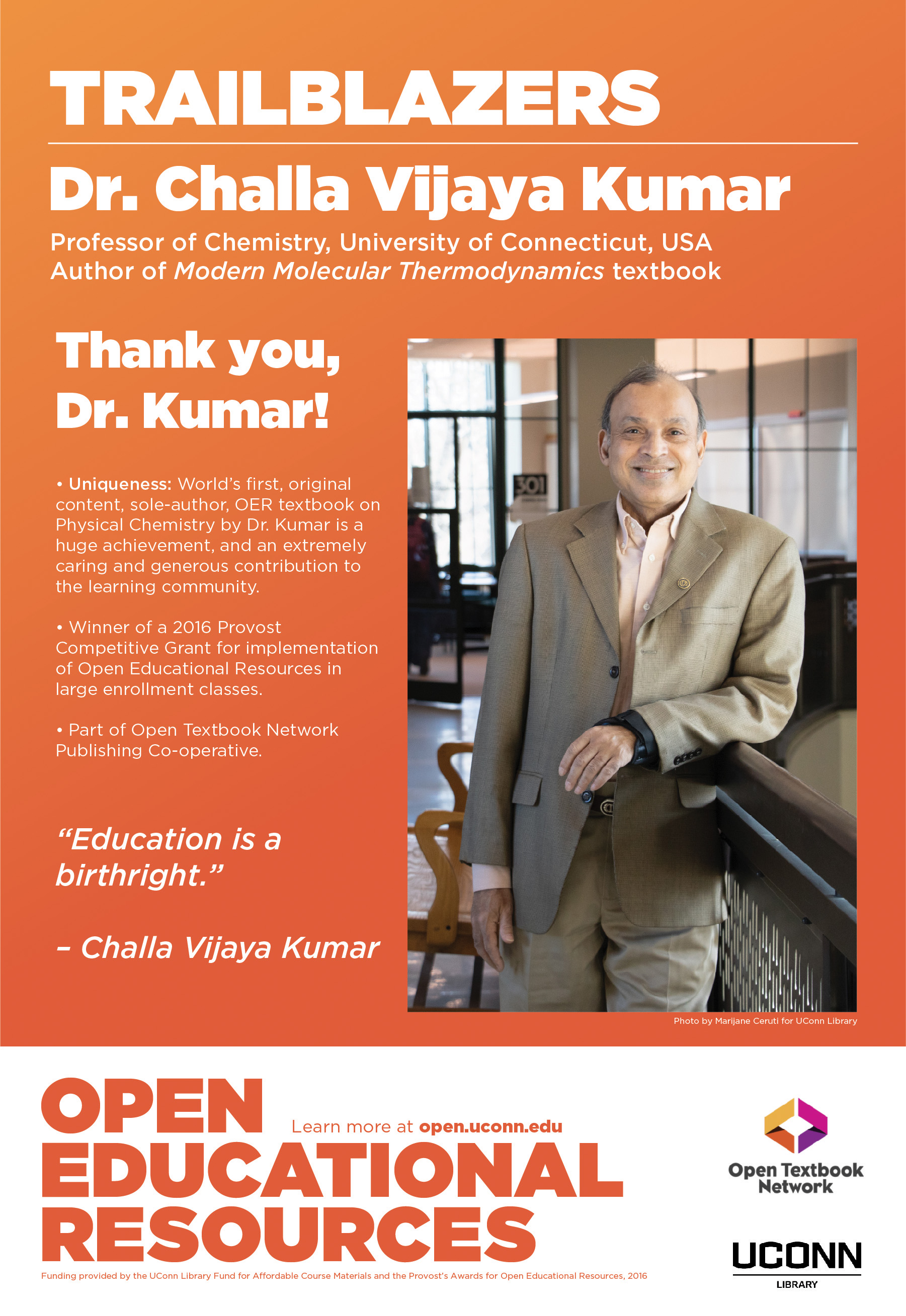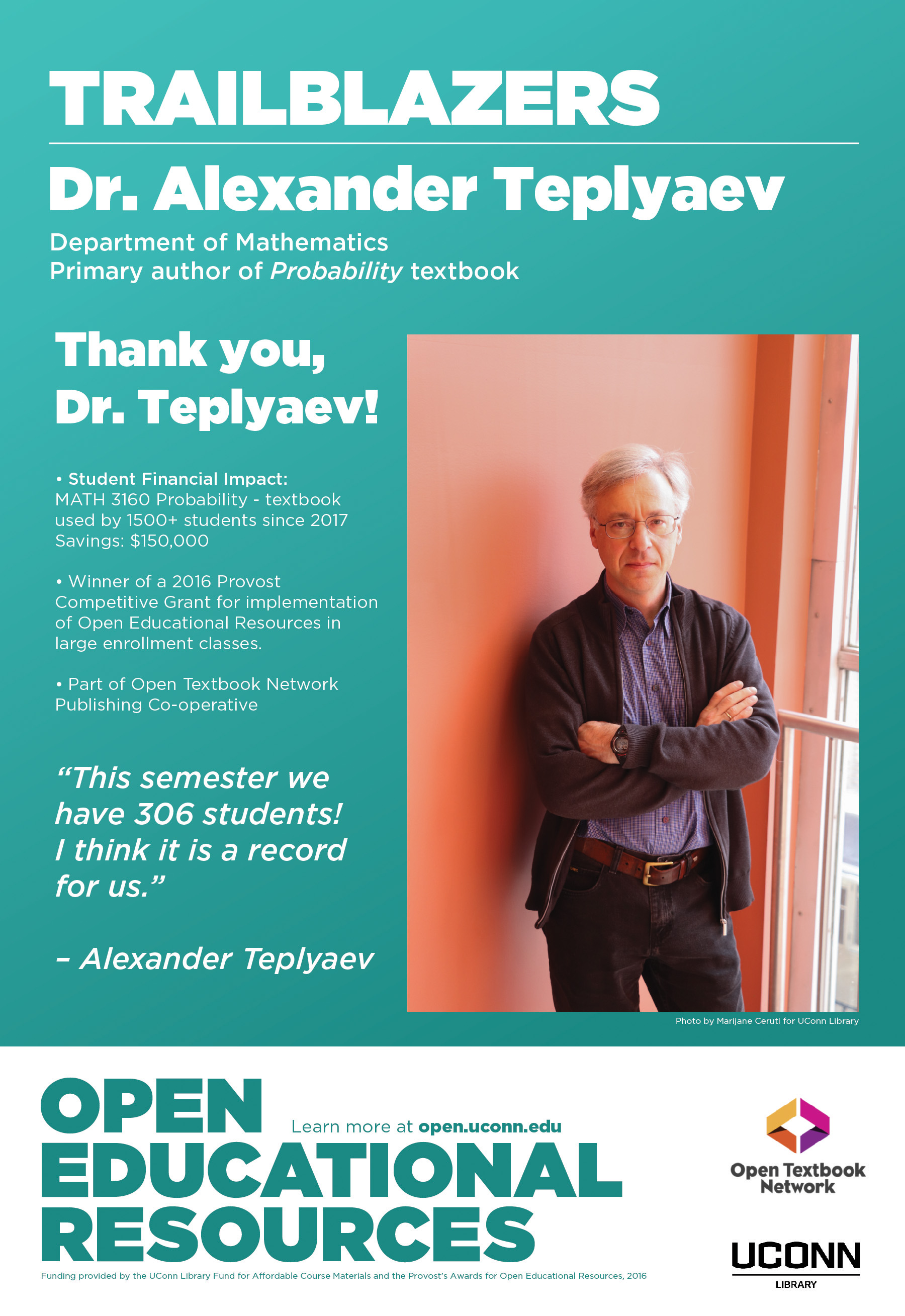Conversations around Open Educational Resources (OER) and, more specifically, open textbooks and how they provide high quality learning while reducing student costs, are turning into action as UConn is set to publish two new open textbooks in Physical Chemistry and Mathematics.
 Professor Dr. Challa Vijaya Kumar, professor of Chemistry recently completed the manuscript for his open textbook titled Modern Molecular Thermodynamics to be published in OpenCommons, UConn’s online repository for scholarship and creative works. The textbook is one of the world’s first OER textbooks in physical chemistry with original content by a sole author. “Education is a birthright,” says Dr. Kumar. “We should do everything possible to remove the economic barriers to make this affordable to everyone on the planet. Period.”
Professor Dr. Challa Vijaya Kumar, professor of Chemistry recently completed the manuscript for his open textbook titled Modern Molecular Thermodynamics to be published in OpenCommons, UConn’s online repository for scholarship and creative works. The textbook is one of the world’s first OER textbooks in physical chemistry with original content by a sole author. “Education is a birthright,” says Dr. Kumar. “We should do everything possible to remove the economic barriers to make this affordable to everyone on the planet. Period.”
Mathematics faculty teaching Probability (Math 3160), an upper level course in the College of Liberal Arts & Sciences, have been working with open source materials for three semesters. Over the past semester alone, it has saved students an estimated $30,000 and evaluations of the class have been positive. One student wrote, “The book was easy to understand and explained things clearly and I felt confident that I could find anything that I was looking for in the text, which is not common for most books.” Led by Alexander Teplyaev, the textbook is scheduled to be published in OpenCommons in 2020.
Publishing a textbook under CC BY licensing allows future educators and learners to reuse, revise, remix, redistribute, and retain the material as needed for updating, customizing, or specialization. Both are also written for upper division courses, where textbook costs can soar due to the specialized nature of the content.
Behind the scenes, the UConn Library has provided support for the publishing. In January, 2018 the UConn became a founding member of the Open Textbook Network Publishing Cooperative, a program designed to publish new, openly licensed textbooks. Three UConn librarians along with staff from eight other higher education institutions received training on aspects of open digital publishing from editing to textbook design and accessibility. When published, the books will be available in many formats through UConn’s online repository.
“The commitment by members of UConn’s faculty to do what they can to improve student learning and simultaneously reduce their costs is truly wonderful,” noted Anne Langley, Dean of the UConn Library. “We are excited to keep the forward momentum going.” More information about Open Educational Resources at UConn can be found at www.open.uconn.edu.

